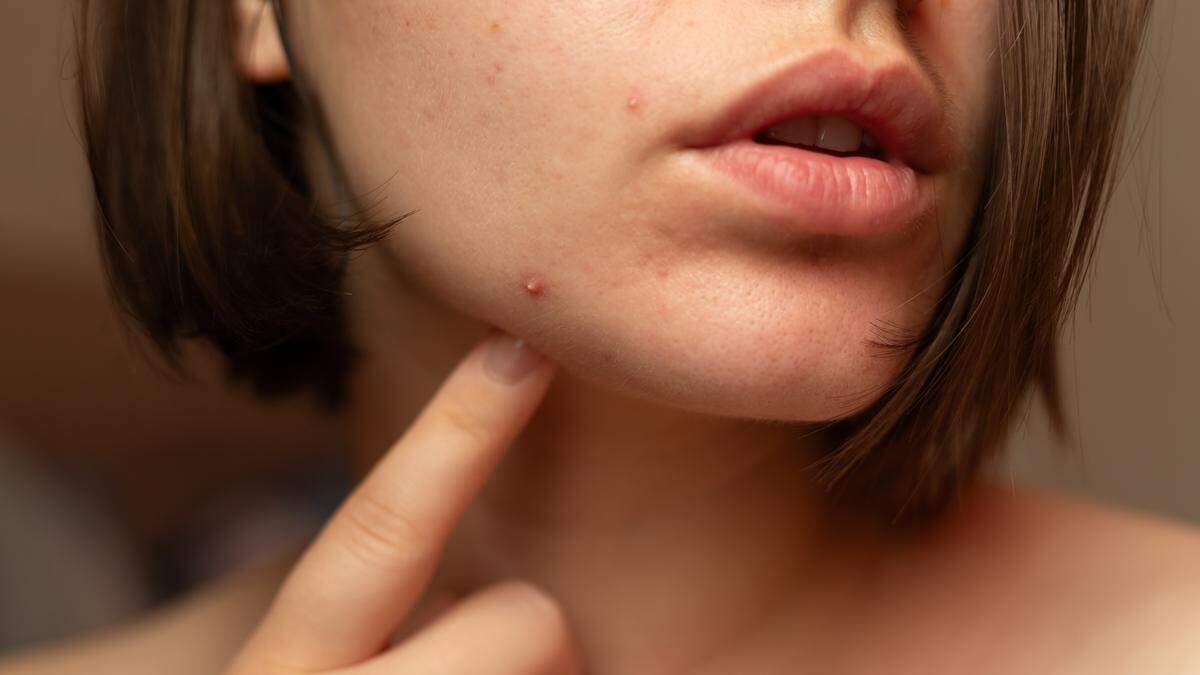Acne is one of the most common skin conditions worldwide and is not just confined to teenagers going through puberty. Luxembourg has more than 62 cases of acne per 1,000 people, one of the highest rates in Europe.
Typical symptoms include blackheads, inflamed spots and sometimes deep nodules and pustules that leave scars, especially on the face, back and chest.
The cause is usually a combination of increased sebum production, clogged pores, disturbed skin flora and inflammatory reactions. “Hormones, stress, diet and genetic predisposition also play a role,” says Dr. Melanie Hilgers, a Luxembourg dermatologist. But what is the best way to treat acne? Many of the tips circulating on the internet do more harm than good.
Myth 1: Toothpaste helps against acne
Admittedly, the idea sounds tempting: a little toothpaste on the spot and everything will be gone the next morning. “Unfortunately, this is a misconception and can even damage the skin,” Hilgers warns. Toothpaste does contain disinfectants, but it also contains irritants such as menthol and fluoride: “These irritate the skin even more, dry it out and can increase inflammation.”
Myth 2: Washing more often helps
Dirt is to blame for acne, so just clean your skin more often. This assumption persists. In fact, quite the opposite is true: washing your face too often or with aggressive products puts enormous stress on the skin. It can react by producing even more sebum – and that is exactly what exacerbates acne.
According to Hilgers, cleansing twice a day with a mild, preferably soap-free product is sufficient. Afterwards, the skin should be treated with a light, non-comedogenic cream, in other words, a product that does not clog the pores.
Myth 3: Chocolate
A diet high in sugar and fat can promote inflammation in the body, but it cannot be said that this is solely responsible for acne.
The fact is that highly processed carbohydrates such as sweets or white flour products cause blood sugar levels to rise rapidly; one of the consequences is to promote sebum production via the growth hormone insulin, and this can worsen acne.
Dairy products – especially low-fat ones – are also suspected of promoting acne. The hormones or hormone-like substances they contain are possible causes. It’s the mix that matters – and chocolate alone is not to blame. Hilgers recommends a high-fibre diet and unprocessed foods for better skin.
Myth 4: Acne goes away on its own
This is true, but only to a limited extent. For many teenagers, skin problems ease at the end of puberty. But there are also people who continue to suffer from acne – or who experience a recurrence in adulthood, particularly women.
This is especially common around the time of menopause, when hormone levels change. Anyone who thinks that acne can be “waited out” is mistaken and risks permanent scarring and dark and reddish spots, according to Hilgers. It is therefore better to treat it in good time and seek advice from a dermatologist.
Successful treatment for acne
Benzoyl peroxide has proven particularly effective. Hilgers uses it in her practice. It kills bacteria on the skin, has a mild exfoliating effect and thus prevents new inflammation.
It is available at pharmacies in low doses without a prescription. Azelic acid is also often prescribed by dermatologists.
It is well tolerated, has an anti-inflammatory effect and also helps against dark skin spots. Today, two active ingredients in a single cream are often used to treat acne, for example benzoyl peroxide plus an antibiotic, in order to treat inflammation more specifically.
Those who suffer from more severe acne can also obtain retinoids from a dermatologist, either in cream or tablet form, depending on the severity.
These calm the sebaceous glands and promote cell renewal. They are particularly helpful for deeper spots or acne scars.
However, the treatment needs patience and richer skin care on a short-term basis, “as retinoids can initially irritate or dry out the skin, which first has to ‘get used to’ them”, Hilgers explains. She also uses a laser treatment in cases of acne scars to smooth the skin’s appearance.
Conclusion: individual care and patience
Acne is a complex skin condition with a wide variety of causes. This makes it all the more important to use proven remedies and not rely on half-baked tips plucked from social media.
Stay away from toothpaste, aggressive cleansing gels and “acne diets”. Instead, take your skin seriously, get personalised treatment and stick with it. With the right care and patience, you’ll achieve the best results and feel more comfortable in your skin again.
